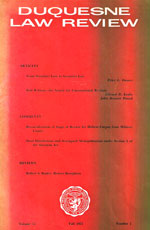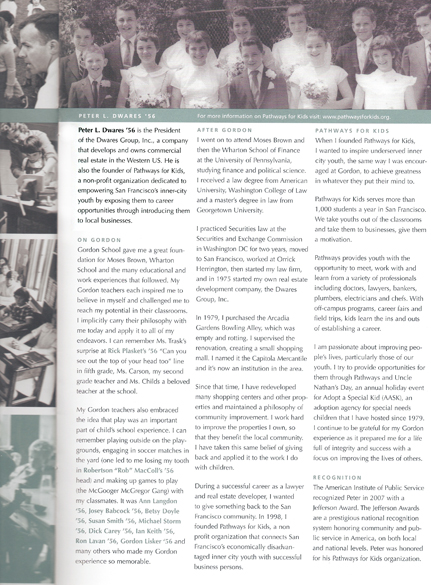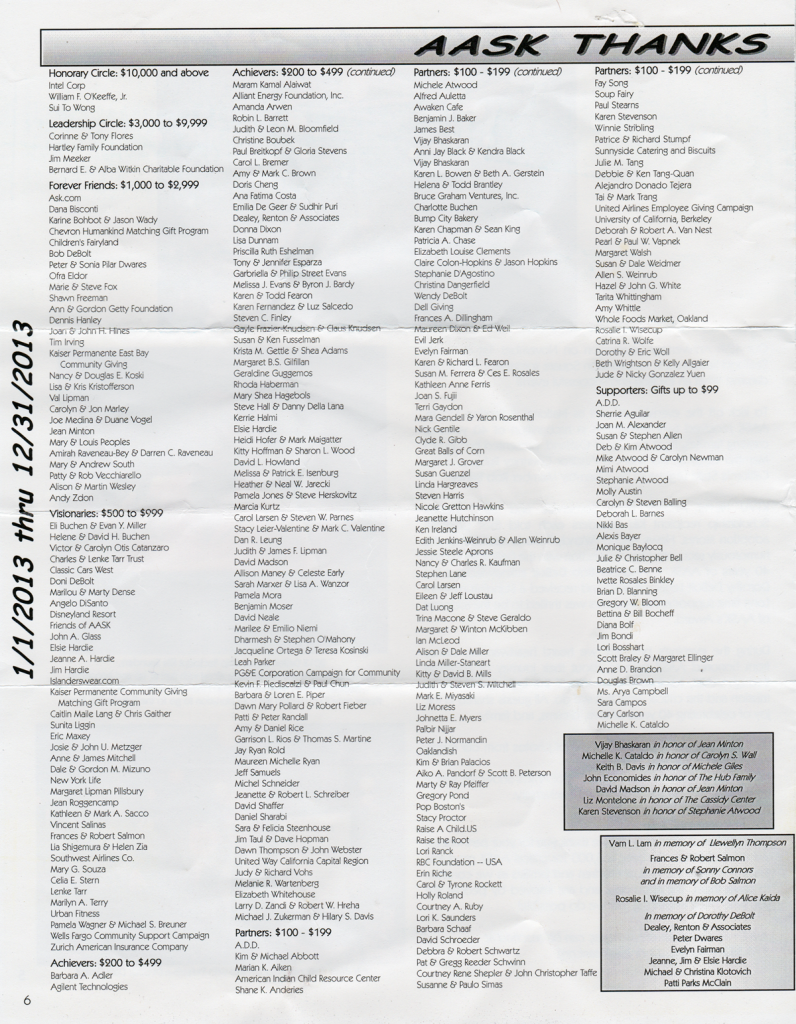Subject: Thank you From: Rafael Bardají
From: Rafael Bardají
To: pldwares <pldwares@aol.com>
Cc: ‘dweinstein’
Carmen Calero’
Sent: Fri, Oct 3, 2014 1:08 amSubject: Thank you
Dear Peter,On behalf of President Aznar and myself, I would like to warmly thank you for supporting us by hosting a lunch on behalf of the Friends of Israel Initiative and for your pledge of a donation. It was a great pleasure for me to share with you and your guest some of the actions we have taken and the goals we are aiming to achieve.
This year is especially critical for the future of Israel and the entire region. Every effort to strengthen Israel and preserve Israel’s freedom to act is crucial, and we are in the process of expanding our efforts accordingly. You can be assured of that.I sincerely hope we have further opportunities to meet and discuss the strategic challenges for Israel that we strongly believe are the same challenges for all of us. It would be a pleasure and an honor to count on you again in the future since your support is invaluable for our cause.
In the meantime, please feel free to contact me about any issue you may consider appropriate. Again, thank you very much on my behalf and on behalf of President Aznar, our chairman, and everybody involved in FoII.
All my best,Rafael Bardají
Executive Director
From Securities Lore to Securities Law
The following article. written by Peter Dwares, was published in Duquesne Law Review.

Duquesne Law Review
Duquesne Law Review
Volume 11, Number 1, Fall 1972
From Securities Lore to Securities Law
Peter L. Dwares*
A lawyer frequently has to deal with that discombobulating concept, the restricted security. As used in this article the term means that its owner generally cannot “offer” the security to the public without first filing it for registration under the Securities Act of 1933. The 1933 Act further provides that any “sale” of securities to the public before the registration statement is “effective” can be met with an injunction, a private suit for damages, or criminal proceedings. The security may be restricted because of the way in which the holder purchased it; for example, he may have bought pursuant to section 4(2) of the 1933 Act which exempts a non-public offering!’ He may have received stock in exchange for stock in a company he controlled, the transfer of which is exempt pursuant to rule 133, which states that certain transactions are not sales under the 1933 Act. The security may be restricted because of his status; for example, if he can or does control the company issuing the stock. There are other ways a security can be restricted, bit these are the most common as well as the situations most affected by recently implemented Securities Act Rules. In each of the above situations, except where a control person may have purchased his securities in a registered transaction, only the selling transaction was exempt; the security itself was not exempt. Because the 1933 Act generally requires the registration of any offer of securities the holder desires to sell, either the company registers the holder’s securities (only the company can file the registration statement under the provisions of the 1933 Act), or he must find an exemption for the sale. Absent an agreement with the company made at the time of purchase to register his securities, it is highly improbable that it will file a registration statement at his request, even if he is willing to pay the very substantial expenses entailed. The reasons it will not are: (1) it may not want to disclose its economic situation; (2) the registration process is inconvenient; and (3) its principal officers and directors can be liable for misrepresentations or omissions. Even if the company is planning to register its own offering, it may not wish to register an individual’s securities, as the incremental offering may not be easily absorbed by the market.
NEITHER AN ISSUER, UNDERWRITER, OR DEALER
Consequently, the holder must find an exemption for sale which ordinarily will be section 4(1) of the 1933 Act, which states:
The provisions of Section 5 shall not apply to any of the following transactions: (1) Transactions by any person other than an issuer, underwriter, or dealer…
Since issuers and dealers are easily identifiable, the most frequent question is whether any one in the transaction is an underwriter. Section 2(11) of the 1933 Act defines an underwriter as follows:
The term “underwriter” means any person who has purchased from an issuer with a view to, or offers or sells for an issuer in connection with a distribution of any security, or participates or has a direct or indirect participation in any such undertaking, or participates or has a participation in the direct or indirect under-writings of any such undertaking…
Thus, the term underwriter applies not only to an investment banker but to anyone who comes within the above definition. Under the Securities and Exchange Commission’s previous interpretation of section 2(11), unwritten lore, in order to demonstrate that he was not an underwriter, a person who received stock in a private placement merely had to retain ownership for a sufficiently long period of time to show that he was purchasing for investment rather than effecting a distribution; his holding period would be reduced if he suffered a “material change of circumstances,” unforeseeable to him at the time of his acquisition. This change, it was presumed, would justify the change of his investment plans. Examples of unforeseeable material changes were severe illness or death of the shareholder or someone in his immediate family; in most instances economic changes were deemed to have been foreseeable. Moreover, under the doctrine of “fungibility,” a later private purchase of securities, unless a de minimus amount, would begin the holding period of the initial acquisition again. Therefore, even if he held, the stock he bought initially for a very long period of time, a later private purchase would mean that he could not sell the securities purchased initially until he had held the newly acquired securities long enough.
A second situation where a holder of securities might have to demonstrate lack of underwriter status occurs when he takes stock in a rule 133 transaction. Rule 133 concerns reorganization transactions such as a statutory merger or where stock is received for assets as described in the Internal Revenue Code. Although stock is being sold which, as has been stated, generally would require registration, the “A” or “C” transaction is deemed by the rule 133 not to be a sale and thus does not come within the prohibition of the 1933 Act. If the stock of the acquired company is widely-held, and the receiver of the stock was neither an officer, director, or large shareholder of the acquired corporation, generally he is free to sell because the 1933 Act does not apply. If he was one of the above, for reasons too complex to explore herein, the 1933 Act does apply and he may only sell within the dribble provisions of rule 133(d) which provides for small sales periodically. Under a Commission interpretation of of rule 133, if the number of shareholders in the acquired corporation is small, the rule does not apply, and if another exemption is not available, registration is required.
Proposed rule 145, which should take effect early in 1973, will abrogate rule 133 and require merger and stock for assets transactions to be registered.
The underwriter issue can arise in another way. Even should the shareholder establish he is not an underwriter, if he does or could control the issuer and if he is effecting a distribution, his buyer, usually his stockbroker, will be an underwriter, destroying the section 4(1) exemption. The reason for this result is that the definition of issuer for purposes of section 2(11) includes a “control person.” To demonstrate lack of control, he and his associates cannot by virtue of their stock holdings or position with the company control or have the power to control it. A control person in the past could sell some of his stock because of the dribble provisions of rule 154 of the 1933 Act. The rule was similar to the above-mentioned rule 133(d); it permitted the sale in unsolicited transactions in a six month period of an amount not exceeding one percent of the issuer’s outstanding stock. If the stock was listed on a national securities exchange, the amount wad lesser of the latter and the largest weekly volume of trades on the exchange in any one of the last four weeks prior to the sale. The amount that could be sold was reduced by any stock other control persons sold in brokerage transactions in that period. The control person could not sell in that manner every six months, as the sales would become “rolling distribution.” Although rule 154 was actually an exemption for brokers, the Commission took the position that if a control person sold in limited quantities articulated in that rule, he was not effecting a distribution. Therefore, he was selling in accordance with section 4(1).
RULES 144 AND 237
The resolution of the question of whether a transaction involves an underwriter depends on the totality of circumstances, including periods of time, number of person, and quantity of stock. Under the Commission’s previous interpretation of section 2(11), little or no information about the stock being sold had to be available and no limits were placed on what could be sold in order to qualify for section 4(1) exemption. Thus, what should be the most important objective of the securities law–protection of the buyer–was not achieved. Consequently, a study of the problem was included in the Wheat Report.
One of the report’s conclusions would have enabled persons taking in private placements to sell in limited quantities, commencing one year from the purchase, if the stock was that of a qualified issuer; qualifications had to do with information available concerning the company. If not qualified, the owner had to hold at least five years and could then sell only if the issuer had sales over $250,000 per year. For various reasons, rule 144, then revised rule 144 and ultimately final rule 144 were proposed as replacements. On April 15, 1972, rule 144 became the exclusive law governing sales by control person and private placees taking after that date.
Rule 144 has the effect of placing non-control shareholders who own large blacks of restricted securities in a category similar to control persons, on the premise that if a large quantity of securities is being sold, the disruptive effect on the market is the same. Now non-control as well control persons are confined to selling within dribble limitations similar to rules 154 and 133(d). The rule recasts the concept of under-writer to de-emphasize the time one holds and to emphasize the amount being sold and the information or lack thereof regarding the securities. The emphasis has shifted from the section 2(11) words “with a view to” to the section 2(11) word “distribution.” Informational requirements have been administratively written into that statue.
It should be noted that the dribble provisions have changed somewhat from those of rule 154 and rule 133(d). Whereas under those rules a person selling stock of a listed company could sell, in the alternative, the amount traded in any one week of the past four weeks prior to the sale, he must sell the average traded in the past four weeks. The reason for the change is that block trades make the market substantial more volatile than it was when trades 153 and 133(d) were written. Unlike rules 154 and 133(d), rule 144 may be resorted to in successive six month periods. However, if a person does not sell in successive periods, he cannot cumulate what he has not sold. For example, if he sells one percent of the outstanding stock in one six month period and misses the next six month period, he cannot in the third six month period sell three percent.
Rule 144 mandates that the company be subject either to the reporting requirement of section 13 or section 15(d) of the Securities and Exchange Act of 1934 or that similar information to that required by these sections be available.
The doctrine of fungibility which frequently rendered injustices has essentially been eschewed. If one purchases securities of a company in a private placement and later purchases more securities of a company in a private placement and later purchases more securities of the company in a like manner, he need not begin the holding period for the earlier purchase from the later acquisition. But if during the time he holds the securities he acquires an option to sell or sells short, the running of the holding period ceases. The theory is that he must be “at risk of ownership” to fulfill the requirement of investment intent.
As has been the case in the past, stock dividends and splits relate back to the initial acquisition. They do not start a new holding period. The holding of a converted security may be tacked on to the holding period of the underlying convertible. Moreover, in an “earn out” situation (where the seller of the stock may receive more stock should the earnings of his former company rise), the receipt of the contingent securities also generally relates back to the initial acquisition. This had been a matter of dispute in the past.
In distinction from past policy, if a person buys in a private placement, holds the security for a year, and sells it to a second private placee who holds it for a year, the second purchaser may not tack the two periods. However, if a person buys pursuant to the private placement exemption and makes a gift of the securities to another person after he has held it for a year, the second person may tack the two holding periods.
It is of interest to note that the old concept of a control group has changed. Under rule 154 a control person was limited in the amount he could dribble by that which others in control of the company had dribbled, whereas under rule 144, unless they are acting in concert, each can sell under the entire dribble limitation. Since the seller must establish his exemption, he must show the absence of concert. Concert may be difficult to disprove. It would appear that if a ten percent shareholder, not active in the business, sells at the same time as the treasurer of the company, it is much easier to show the absence of concert than when the president and vice president make simultaneous sales.
Notice of an offering must be made to the SEC if a person is selling over 500 shares of stock or $10,000, whichever is less, and it must be made simultaneously with the placing of the sell order with the broker.
Rule 144 affects only sections 4(1) and 4(2) and not sections 3(a)(9), 3(a)(10), 3(a)(11), 4(3), and 4(4), the transaction exemptions. However, rule 133 and its no-sale concept may soon be abrogated, thus mergers and asset sales will require registration or an exemption therefrom.
The second rule promulgated is 237. It deals with those companies in regard to which there is inadequate information available so as to preclude compliance with rule 144. The rule states that if the person who has bought the security is not an issuer or a control person of the issuer, and he has owned the security for at least five years, he can sell no more than an amount equal to the gross proceeds from the sale of one percent of the security outstanding or $500,000 in any twelve month period. He must give notice to the SEC ten days before the sale and can only sell in a negotiated transaction; and there are other conditions. Thus, qualifying for for rule 144 treatment by filing a voluntary registration under section 12 is recommended for any company desiring to finance or make acquisitions through the private placement route.
THE ROLE OF THE SEC
Since the company will be violating the 1933 Act if the holder transfers when he should not, it will instruct the transfer agent to request an opinion of counsel that the security holder is not an underwriter or control person before permitting transfer. Anyone participating in an unregistered sale that involves an underwriter is violating the 1933 Act, notwithstanding his innocent intent. The company may also request the holder to obtain a representation from the Commission’s Division of Corporation Finance that should he sell, the Division will not recommend to the Commission that any legal action be taken. The representation requested is popularly referred to as a “no-action letter.” The Division’s representation does not mean that an unhappy purchaser would be precluded from demonstrating in a civil action for damages that the seller was an underwriter.
When a request for no action arrives at the Division, the response is drafted by a staff attorney and reviewed by an attorney in the Division’s chief counsel’s office. Incoming letters and replies are available to the public so that similar factual situations may be examined. If the Division’s response is favorable and if the required opinion of counsel is favorable both are given along with the securities to the transfer agent and the sale is implemented. No-action letters are no longer issued for private placement purchases made after April 15, 1972. On questions of other exemptions and interpretation of rule 144, they continue to be issued. Since the private offering exemption constituted the overwhelming majority of requests for no action, this should markedly reduce the time for receiving the answers to other requests for no action.
SUMMARY
The new rules better protect both stock buyer and seller and should also be salutary to companies in search of venture capital. They protect the buyer and the market in general, by focusing on the quantity of stock being sold and information available as to that stock. They protect the seller because of the certainty they provide as to how long he must hold and because they do not penalize him for what his associates sell. Contrary to the opinion of many, they will also be beneficial to small companies raising funds in private placements, since the buyer is now certain as to the time he must hold and the amount he can sell and will thus be more willing to invest. In this regard, he can apply pressure on a company not qualified under rule 144 to voluntarily become a reporting company. Thus, the uncertainty of the “lore” has been replaced by the certainty of the “law.”
Download the original article with footnotes here: From Securities Lore to Securities Law
Dwares Blue Angels Party 10/9/2010
High above San Francisco, on a rooftop boasting one of the finest views in The City, some of the finest people in The City gather to enjoy the aviation triumph and sensory overload that is The Blue Angels.
Click here to view photographs by Gary Orenstein.

Peter Dwares in Dwell Magazine and Gordon Alumni Connections
Peter Dwares’ San Francisco home was recently features in Dwell Magazine for the April 2010 issue. Read below.

- Dwell Magazine 2010

- Dwell Magazine 2010

- Dwell Magazine 2010

- Dwell Magazine 2010
We are also happy to mention an article published by Gordon Alumni Connection titled “Gordon School’s Centennial History” written in the Spring 2010 issue. Read below.

- Gordon Alumni Connection 2010
2004 – Letter to Senator Baucus
Senator Max Baucus
I’m flattered you ask my opinion. Here it is. Going into Iraq was gray not black and white but we could justify it morally using most recently Milosevic as a precedent.
The issue is whether exporting democracy to this area in hopes of providing an alternative to the darkness of solely theocratic indoctrination with no tolerance for other views is justified. Turkey is an example that democracy can happen in Muslim States.
If we had not deposed Saddam, and he did develop nuclear weapons and wanted for example Kuwait, we’ve got the same problem we have with North Korea. It’s a stand off. We might not be able to stop him. And this is the most strategic area because of oil.
As for our economy, for the first time I can remember, we really have deflation. Cars with rebates, TV prices falling, restaurants reinventing themselves with $13 entrees down from $28 with the internet business diminished. Only housing because of low interest rates and commercial real estate because of fear of the stock market have not deflated. Housing will deflate when rates go up and even with the Fed keeping them low, a $600 billion deficit per year for the foreseeable future (Senator Rudman, Pete Peterson, Sam Nunn) adding to a $6 trillion debt load and a falling dollar has to mean higher government rates hence higher corporate rates, higher loan rates, housing prices fall.
So a tax cut (really $35 billion a year) on a budget of $2.2 trillion is a short term political move to get the President reelected and will have virtually no impact on the economy except to imprudently run up debt. The President riding on the war victory and tax cuts still looks good. However, if nation building in Iraq and Afghanistan result in a mess and the economy deteriorates more with more unemployment, Kerry maybe Lieberman have a good shot if they take on a conservative theme with strong defense with Edwards maybe Vice President nominee. Gerphard on universal health is the wrong issue and I think the wrong personality.
What really scares me is the Defense Department putting its imprimateur on “smaller” nuclear weapons. This gives the idea credibility to any third World dictator or well financed terrorist who comes around. Just one of those bombs will wipe out San Francisco or the Fresno bread basket for 100 years. Nuclear warfare is simply unacceptable and weapons should only be used or updated for mutual assured destruction. Our leadership should make it clear we will not use it tactically. Some leaders here and elsewhere toss using it around in speeches as if it were acceptable.
Life’s interesting. You make your best judgment and hope you are right whether its defense or the economy and you must be ready to admit you are wrong if it doesn’t work.
Warmest regards,
Peter


